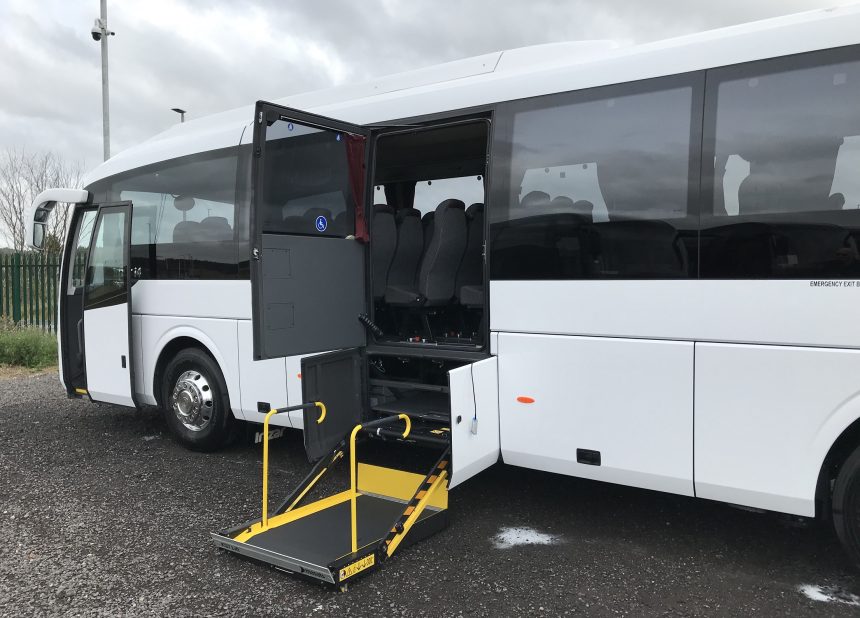Failings in accessibility of coach and bus services have been highlighted in a report from the Transport Select Committee which recommended an “overhaul of laws, strategy and attitudes” with regards to public transport for disabled people.
The committee’s survey of 825 people finds that 44% of respondents “often” or “occasionally” encountered difficulty when travelling by bus as a disabled person or with someone who has a disability.
The report entitled “Access denied: rights versus reality in disabled people’s access to transport” from the cross-party committee says failures should be seen as “discrimination”. It also recommended a “unified, user-friendly complaints service” for all transport modes should be established within 12 months.
The survey indicated that 17% of respondents who either had a disability or were travelling with someone who had a disability “always” met with difficulty on the bus. This represented a higher percentage than for any other mode of public transport.
According to the authors of the report, the most frequently-raised issues in the survey were, “by some distance”, availability and attitudes of public transport staff, and the accessibility and standard of toilets. However, they add: “Accessibility of bus stops and rail stations, access to wheelchair spaces and the availability and service provided by accessible taxis were all mentioned by significant numbers of respondents.”
Among the comments received was: “No room on accessible buses. Bus replacement services for rail journeys not accessible.”
It highlighted written evidence from the Confederation of Passenger Transport in March 2023 regarding bus stops: “Some passengers with disabilities, including those in wheelchairs, are not able to board/alight an accessible bus or coach at many locations because of lack of space to deploy the ramp or lift, or lack of suitable access to/from the stop.”
The report recommended that the Department for Transport should “commit to compiling and publishing in open data format a register of key accessibility assets on the rail and bus network which can be drawn upon by journey planning tools.”
The Committee called for a raising of standards when it comes to training of staff to help passengers with a disability.
“It is not sufficient for training to be delivered on disability awareness, accessibility and preventing discrimination: the training must be of a guaranteed minimum standard and proven to be effective in improving outcomes.”
In a February 2025 government consultation on rail reform, plans were set out for “a powerful new passenger watchdog”. Regarding this, the report adds: “There is also a suggestion that equivalent functions for buses, coaches and trams could be added to the remit of the new body to offer a ‘one-stop shop’ experience to passengers.”
The charity Bus Users UK welcomed the call for action, having previously identified shortcomings in service for disabled passengers. Its Director for England, Lydia Horbury, says: “Access denied confirms what disabled passengers have been telling us for years: that transport accessibility is a national embarrassment.
“Too many people face unacceptable barriers when trying to make every-day journeys, and too much responsibility is placed on disabled people themselves to challenge and push for change.”
Keith McNally, Operations Director at CPT, adds: “Buses are the UK’s most popular form of public transport, carrying 11 million passengers a day. They play a vital role in connecting communities and in ensuring that everybody can access jobs, education and local services.
“As an industry, our goal is to make sure that every passenger who gets on board a bus feels comfortable and welcome. All scheduled bus and coaches that are open to the public should be accessible – including to passengers who use wheelchairs. All drivers of timetabled services should receive disability awareness training.
“Passengers with disabilities make thousands of journeys every day without incident but we recognise that at times, things don’t go to plan. When that happens, as an industry, we need to do better.
“We welcome the conclusions and recommendations of the Transport Committee and bus operators are working closely with the Department for Transport to improve accessibility.”
Speaking on 20 March in the House of Commons, Transport Committee Chair Ruth Cadbury, said: “No mode of transport is free from problems, despite most notionally having accessible facilities and policies…
“More than a third said that, more than once a week, they decided not to make a journey because they knew it would be too complicated, too unsafe or that things were likely to go wrong.
“That is simply an unacceptable infringement of people’s human rights to go to work, to access education, health care and family, to participate in society and just to have fun. Transport is not an end in itself. It is supposed to be an enabler. But far too often it is disabling people.”



























